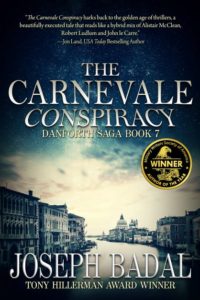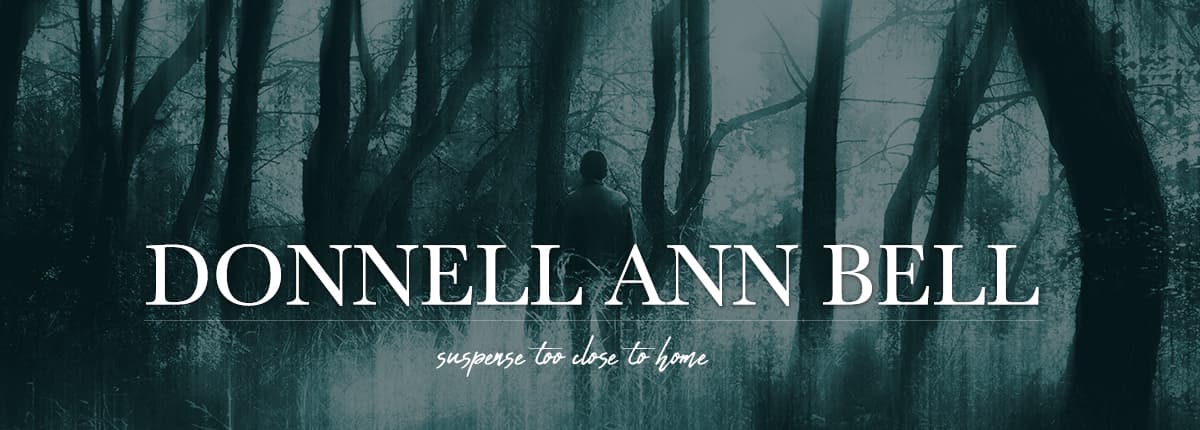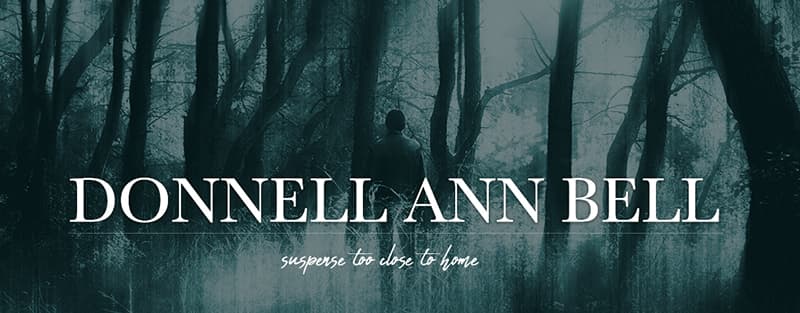
Welcome to Friday and Help From My Friends. Ingredients? Writers aren’t chefs. I submit they are in a sense. What’s more, my next guest has discovered the recipe that makes the story rise and keeps his guests devouring pages. Please welcome Joseph Badal, 2020 Author of the Year for Military Writers Society of America. ~ Donnell
A Good Story Needs Tension
By Joseph Badal

Author Joseph Badal
When I became serious about writing, I was under the mistaken impression that all I needed to do was to write a story based on a good plot. What would you expect from a finance major who had never attended a creative writing class? What I learned as I progressed on my path to publishing my first novel was that without a good story you have nothing. That’s obvious. But a good story is never enough.
Years ago, I constructed a list of Writing Rules that has become a template against which I rate my own work. These rules cover everything from characterization to point of view; to showing, not telling; to proper use of contractions; to the importance of editing; etc. But there is one particular “rule” that is the life blood of all good writing: tension. It is the way the writer engages the reader. Whether in poetry, non-fiction, fiction, or any other genre, without tension, the writer will fail to engage the reader. An unengaged reader is someone that represents an opportunity cost to the writer. An unengaged reader is a lost reader. Someone you may never recover. A writer friend of mine once told me that his author’s Hippocratic Oath is “First do no boring.” Without tension, a writer risks boring the reader, and ultimately losing the reader forever.
 Tension is what fascinates the reader. It is the element that drives the reader’s interest. It raises the reader’s heart rate and adrenaline level. The writer creates tension when he puts his characters in jeopardy, which, in turn, puts the reader on the edge of his seat.
Tension is what fascinates the reader. It is the element that drives the reader’s interest. It raises the reader’s heart rate and adrenaline level. The writer creates tension when he puts his characters in jeopardy, which, in turn, puts the reader on the edge of his seat.
General Stonewall Jackson’s military strategy was to “Mystify, Misdirect, and Surprise the Enemy.” Replace the word “enemy” with “reader,” and you now have a general strategy for creating tension in your work.
Within that strategy, there are tactical devices for creating tension. Sheldon Siegel, in Judgement Day, uses the ticking clock device. Will his hero’s client be saved before his execution date? Historical fiction writer Bernard Cornwell, in his Saxon Tales series, constantly changes his hero’s fortunes, placing the hero—and his reader—on a roller coaster ride of action and suspense. David Morrell, in Testament, one of the most frightening books I have ever read, hides his villain in plain sight.
In all the great stories I have read there is the common element of the possibility of death, which makes life—and the story—more real. Of course, there are always threats to innocent bystanders. Think about the most recent book you read. If you really enjoyed it, then I would bet you that tension was a major factor in that enjoyment.
When I begin a novel, I don’t have a clue about where I am going. The characters take me on a journey that never follows a straight line. As I write, I surprise myself with the directions that my stories take. But the one common element that is always front of mind is how I build tension, both on a general thread that weaves its way through the entire novel and on sub-threads that unfold in the form of sub-plots.
characters take me on a journey that never follows a straight line. As I write, I surprise myself with the directions that my stories take. But the one common element that is always front of mind is how I build tension, both on a general thread that weaves its way through the entire novel and on sub-threads that unfold in the form of sub-plots.
My latest novel, The Carnevale Conspiracy, the 7th in the Danforth Saga series, employs a number of these devices. The ticking clock appears in the first chapter and carries the reader on a tension-filled ride until the end of the book. The possibility of death overhangs the protagonist and a cadre of innocents. There are frequent changes in the hero’s fortunes that ratchet up the tension for the reader. And the villains in the story—sleeper cells of individuals who appear to be everyday citizens—hide in plain sight.
Of course, there are vital elements to all writing: plot, characters, scene setting, etc. But without tension, you violate my friend’s credo: “First do no boring.” And don’t forget Stonewall Jackson’s mantra: Mystify, Misdirect, and Surprise.
 About the Book:
About the Book:
Bob and Liz Danforth are on the vacation of a lifetime—Venice, Italy during Carnevale. But, when they are caught up in the diabolical actions of a secret organization, patterned after the 11th Century’s Hashashin, or Order of Assassins, their trip becomes a nightmare of herculean proportion.
The Carnevale Conspiracy is an epic tale that brings together international intelligence agencies; a cadre of assassins inspired by a 900-year-old sect and their leader, the Old Man of the Mountain; a global assassination campaign that targets Western leaders; an intrepid MOSSAD agent; and a cast of heroic characters and evil traitors.
Fans of Joseph Badal’s Danforth Saga will find this 7th in the series full of the tension, action, and authenticity they have come to expect and enjoy.
“Who can resist an original take on international terrorism, smart bad guys, memorably crafted settings and a high-stakes game of revenge? Joseph Badal’s latest soars to a climax at Venice’s Carnevale that takes “thriller” to breathless new heights.”
—Anne Hillerman, New York Times Bestselling Author of the Chee/Leaphorn/Manuelito Mysteries, Including Stargazer
About the Author: Joseph Badal is the author of 17 award-winning suspense novels, is an Amazon and Barnes & Noble #1 Best Selling Author, and a two-time winner of the Tony Hillerman Prize for Best Fiction Book of the Year. He has earned multiple Gold Medals from the Military Writers Society of America, is an Eric Hoffer Award Winner, and three times earned “Finalist” recognition from the International Book Awards. He was named the 2020 Writer of the Year by the Military Writers Society of America.











Great blog and a timely reminder on how to keep that reader turning the pages.
Thanks, Candy, I agree. I ask myself Joe’s question with every page I write. We have a lot of information to pass on to our readers — how to do so and make it interesting at the same time. That tension bolsters it every single time 😉
Joe, I love this blog. Thank you for being my guest today. I once had a critique partner say to me, “Your research is showing.” That’s an embarrassing moment. Reading your blog, and hanging on every word, you write: An unengaged reader is someone that represents an opportunity cost to the writer. I submit, sir, your finance major is showing 😉 Can’t wait to dig into this story!
Thank you for the ticking clock reminder…just went back and added it to my first page.
Great wisdom here. Love the Stonewall Jackson quote. And the Carnevale Conspiracy looks terrific! Another for the TBR stack,. Congrats on all your awards, Joe, and thanks to you both for this post!
This is a great post, Joseph and Donnell. Love the take on the Stonewall Jackson quote and your friend’s writers oath! I look forward to reading Carnevale Conspiracy.
Thank you Donnell for posting my article. Love the comments from your followers.
This is an excellent essay on writing and maintaining suspense, but I hardly expected anything less. I had the pleasure of meeting Mr. Badal a few years ago at the PSWA conference and found him to be as personable as he is talented. Thanks for the great advice on writing.
I love the “do no boring” – Great advice on tension. Great cover for your new book.
Very timely post, Joseph! I’m just editing a scene where the two characters agree. My critique partner said, “There’s more tension if they disagree.” Point taken then and reinforced now. Thank you!
Thonie, et al, when I read it, I thought the same thing. I’ve heard this. This is old news. However, when we’re writing we get too close to the topic. Never hurts to have a little voice standing over our shoulder reminding us. Thanks for dropping by.